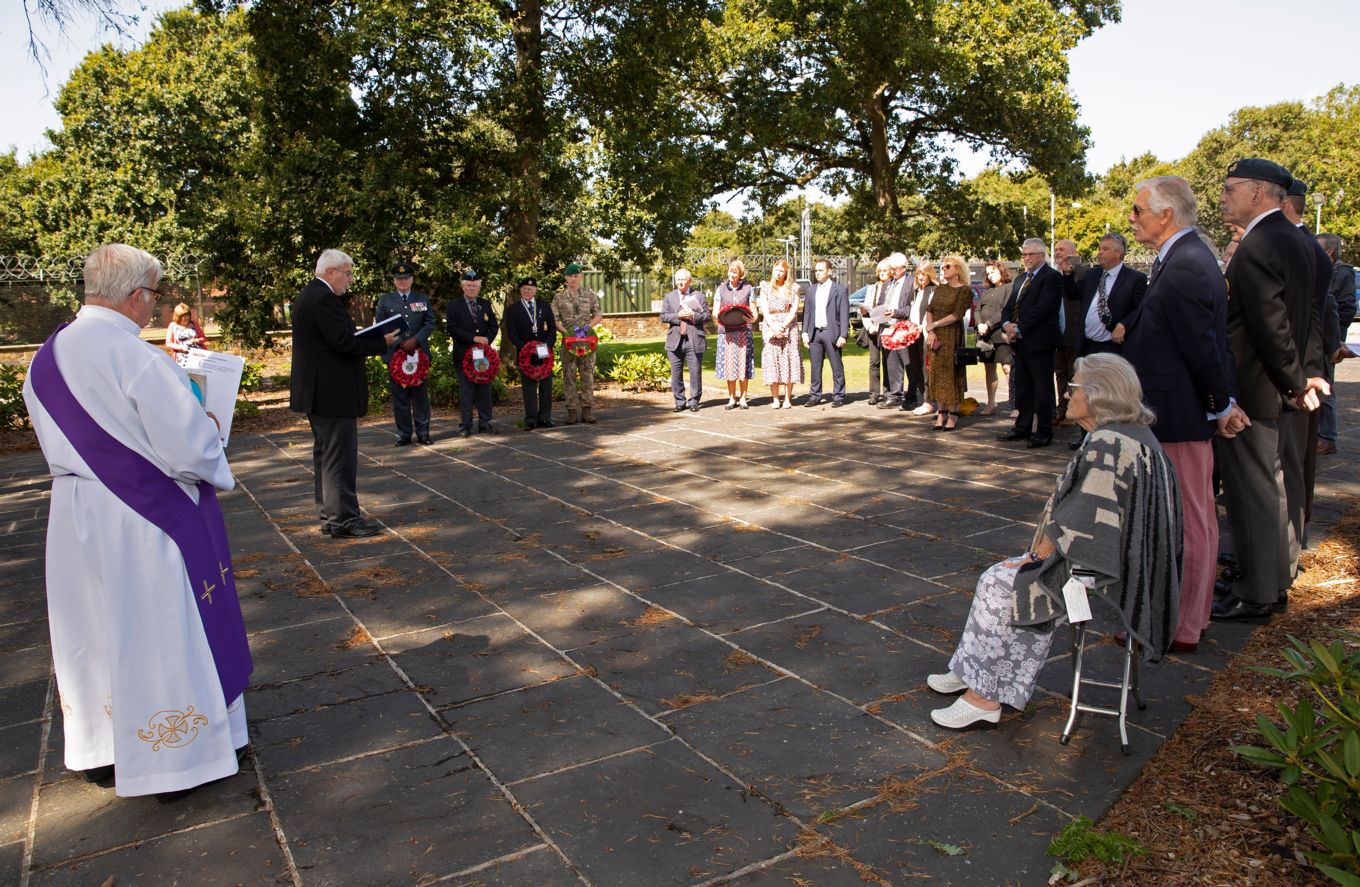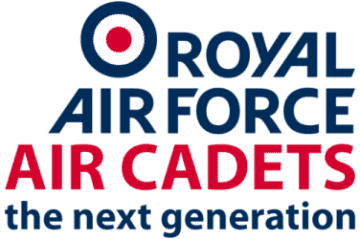A Memorial Service was held in Devon last weekend to commemorate the crash of a Wellington bomber that was piloted by the grandfather of Prime Minister Boris Johnson.
A Memorial Service, led by the Reverend Phil Waites, was held at Royal Marines Barracks Chivenor to commemorate the 75th anniversary of the crash of a Wellington bomber piloted by Prime Minister Boris Johnson’s grandfather that resulted in the loss of two airmen and several other aircrew serving at the base.

Flight Lieutenant Wilfred ‘Jonny’ Johnson was subsequently awarded the DFC for his efforts to avoid further loss of life. Speaking at the service, Stanley Johnson, father of the Prime Minister and Flt Lt Johnson’s son, said:
“Boris regrets not being able to attend today. The accident was my first childhood memory on the eve of my fourth birthday. My mother woke me up to see the conflagration little knowing that my father was the pilot of the aircraft”.
Stanley Johnson
The Wellington Mk XIV crashed when returning from an aborted anti-submarine patrol over the Western Approaches. The navigator Warrant Officer GV Butchart RCAF and Air Gunner Flight Sergeant GA Wilson died but Flt Lt Johnson and three others survived the crash a 23.20 on 17 August 1944. The service was attended by and the families and descendants of the crews of aircraft that crashed at Chivenor during the war.
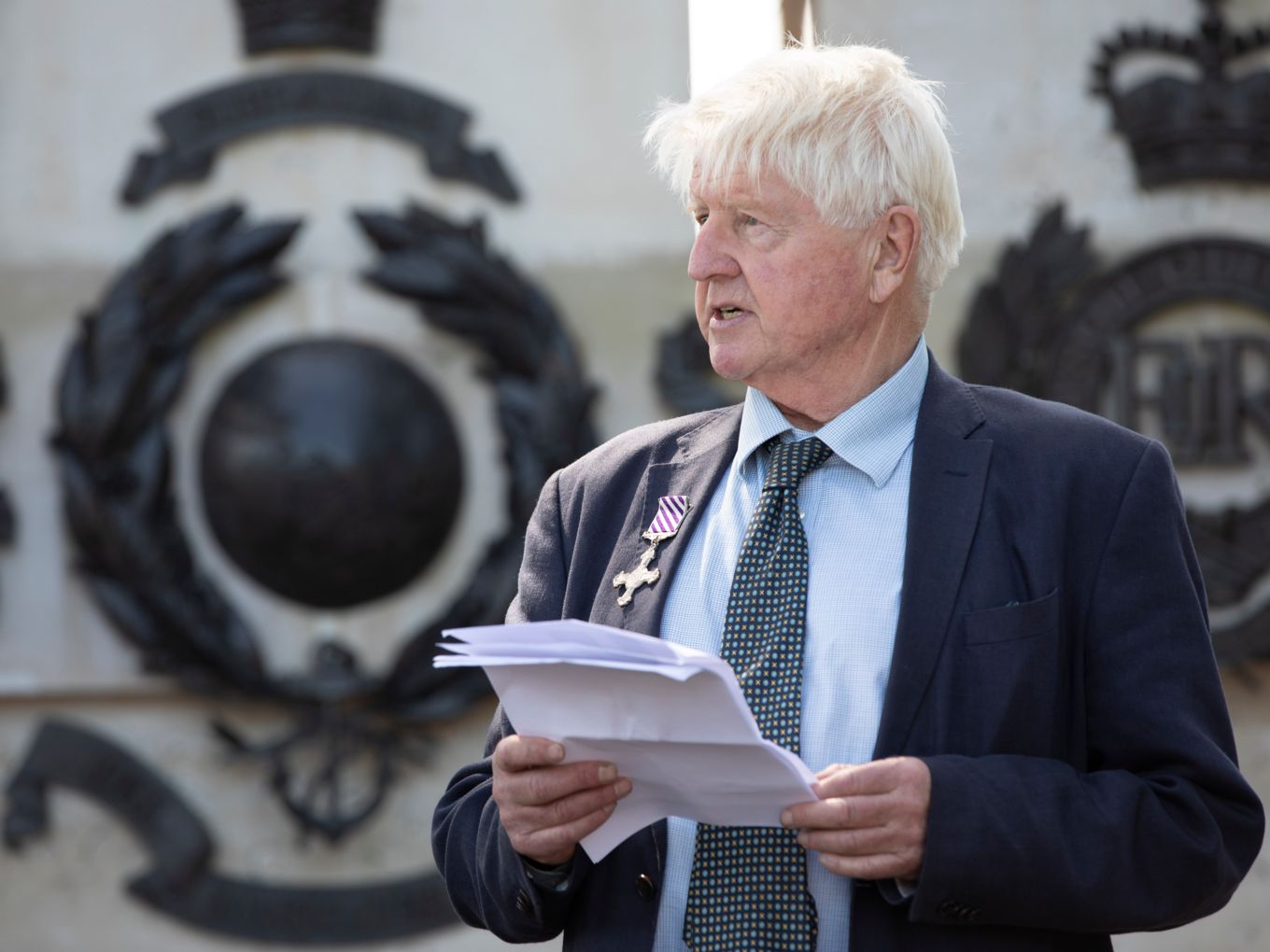
Jonny elected to overshoot in order to ditch the depth charges and discharge some fuel. Despite doing so over Saunton Sands the aircraft continued to sink and they had to turn port to avoid the high ground to the north of the airfield. This further added to their difficulties. With the port engine shut down Jonny could not bank too much without stalling the aircraft. The result was not being able to line up with the runway so he elected to land on some open ground on the approach. Sadly, they hit a telegraph pole and crashed.
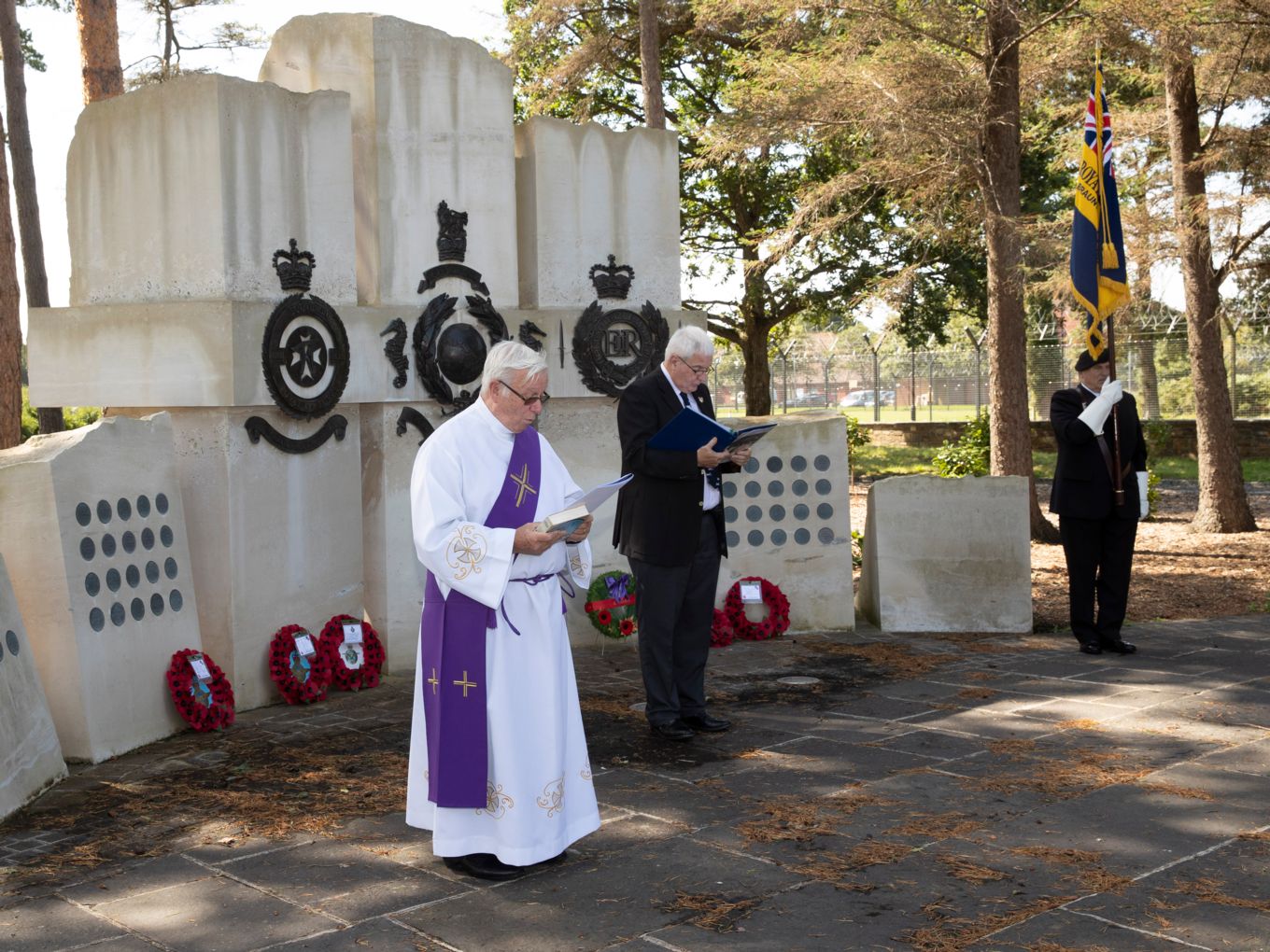
Rob Palmer and Graham Moore led the local team from the British Military History Group who researched the crash. The aircraft had taken off at 22:30 but had to abort the mission when their radio failed shortly after take-off. However, on approaching Chivenor to land, the port engine failed. Knowing there was a large social gathering at a dance on the base, the crew realised that possibly crashing with a full load of fuel and depth charges would be catastrophic and could mean a heavy loss of life on the ground.
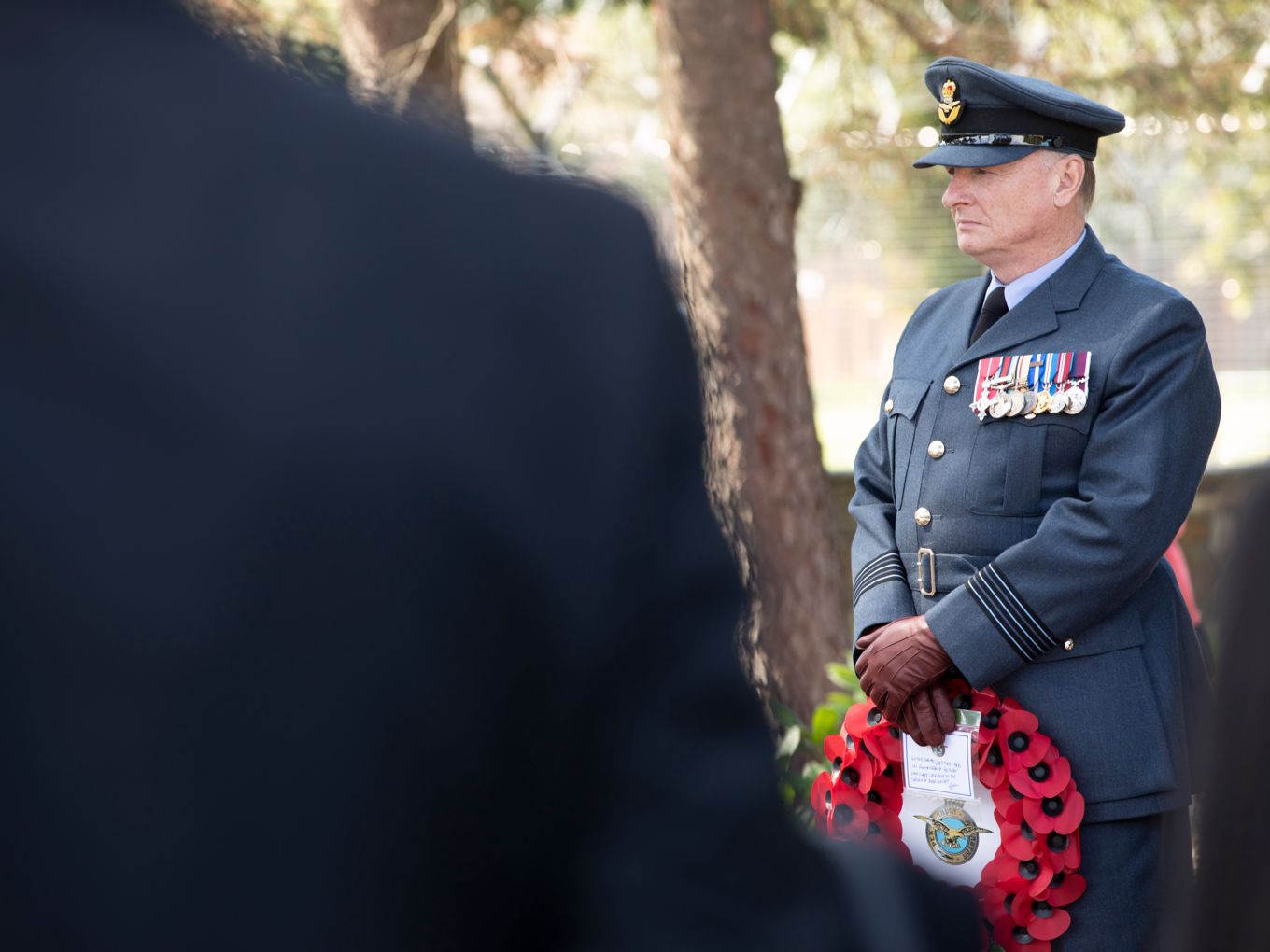
“Today we acknowledge the extraordinary contribution all the aircrew of Coastal Command made to the Battle of the Atlantic and the sacrifices they made"
Stanley Johnson
Mr Johnson added:
“I am very proud to be here today. Graham and Rob have documented the extraordinary feat of flying that resulted in my father being awarded the Distinguished Flying Cross you see me wearing today. I had not known that my father had crashed two weeks previous to this event and was back flying two days later. Today we acknowledge the extraordinary contribution all the aircrew of Coastal Command made to the Battle of the Atlantic and the sacrifices they made”.
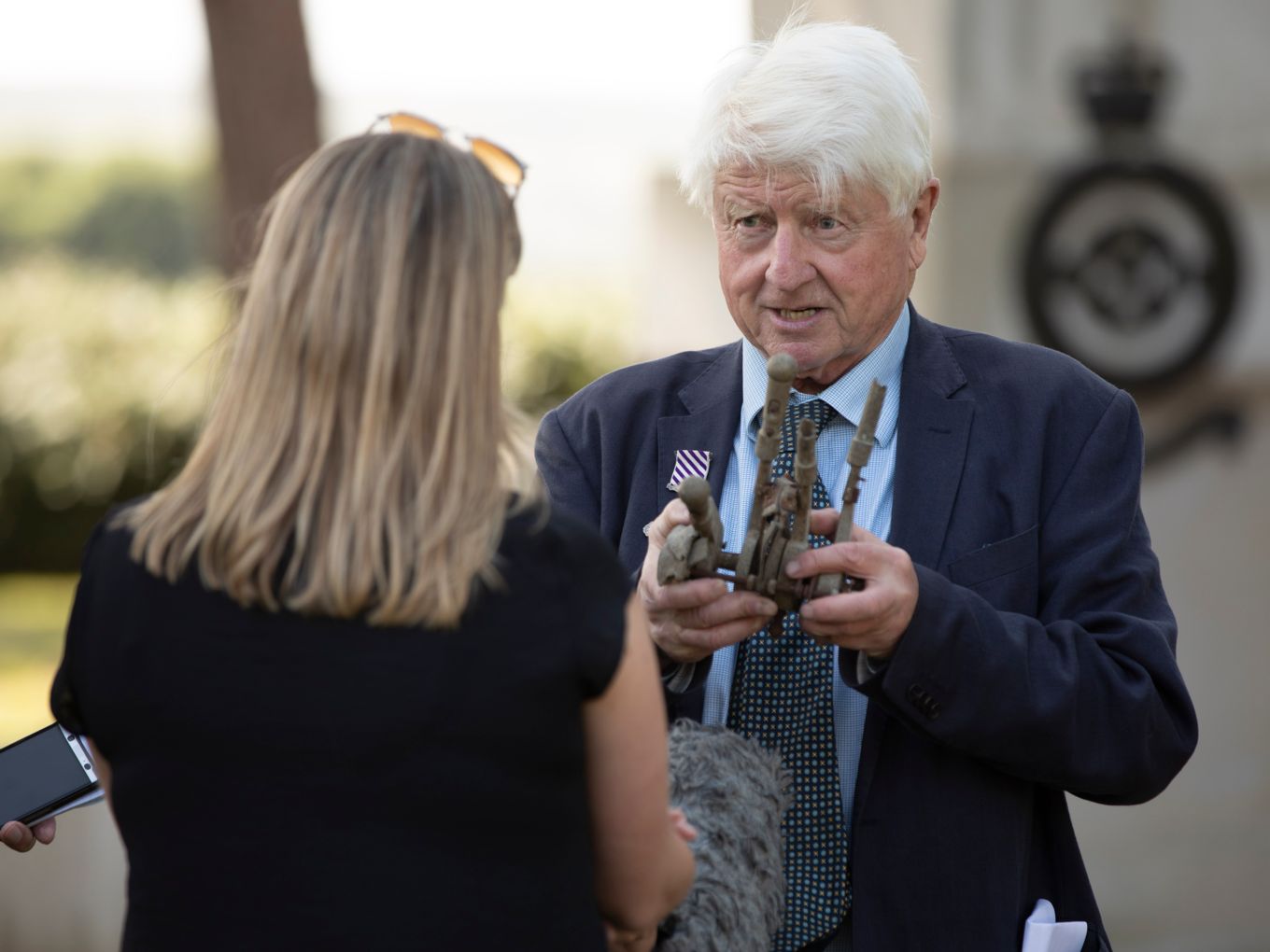
Carolyn Bacon’s father, Flight Sergeant Lewis Wilding, was a wireless operator and air gunner on the aircraft. She laid a wreath at the event and said:
“I came here first when I was six and was shocked to see my rufty-tufty dad cry and that was when I realised what this place meant to him. He didn’t speak much about the accident until late in life.”
Her daughter Emma added:
“I am so proud of my grandfather. The other crew members were so important to him and it is nice to meet their families here today”.
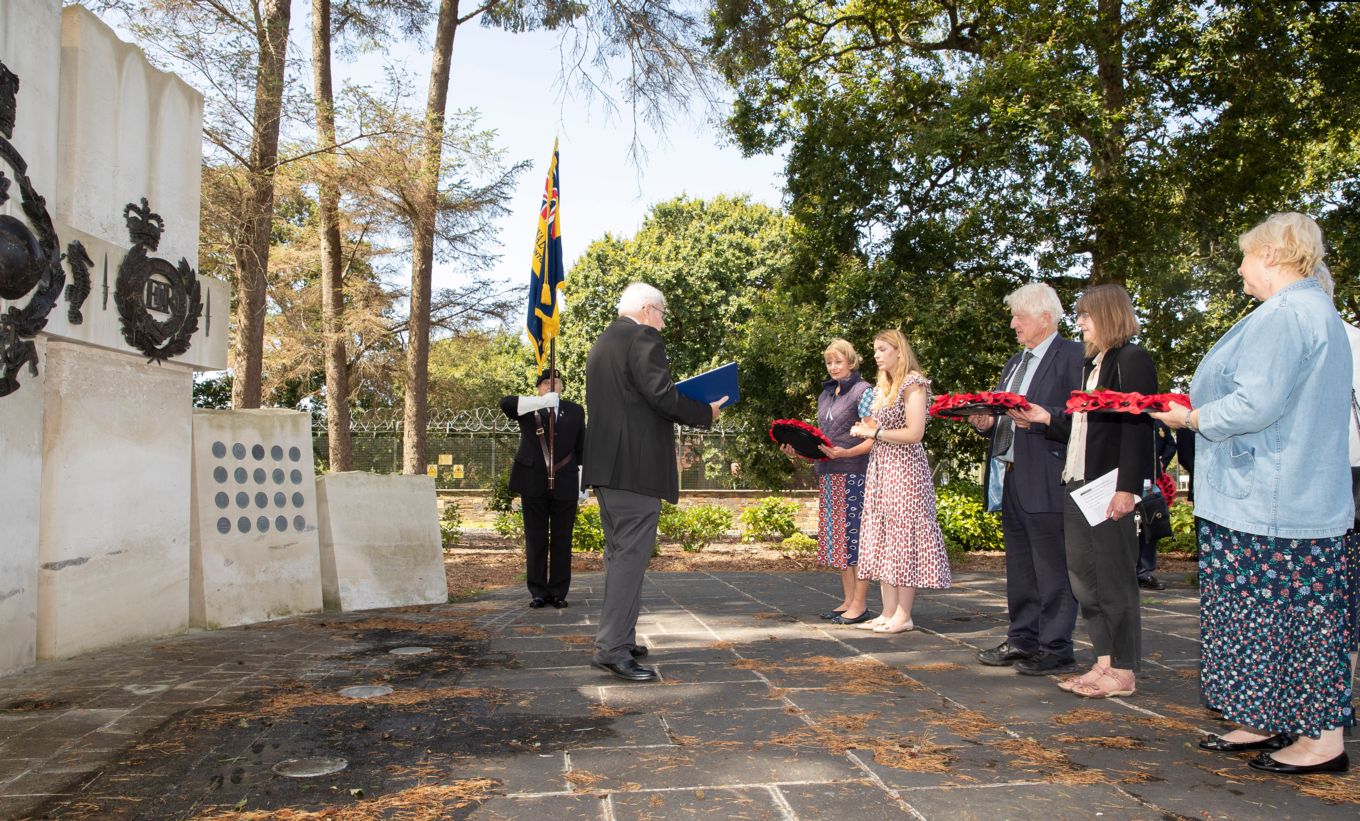
Wing Commander Graem Corfield MBE who laid a wreath on behalf of the RAF said:
“It was my privilege to do this. It is absolutely essential to remember the sacrifice of our crews during wartime and to continue our links with communities of places such as former RAF Chivenor”.
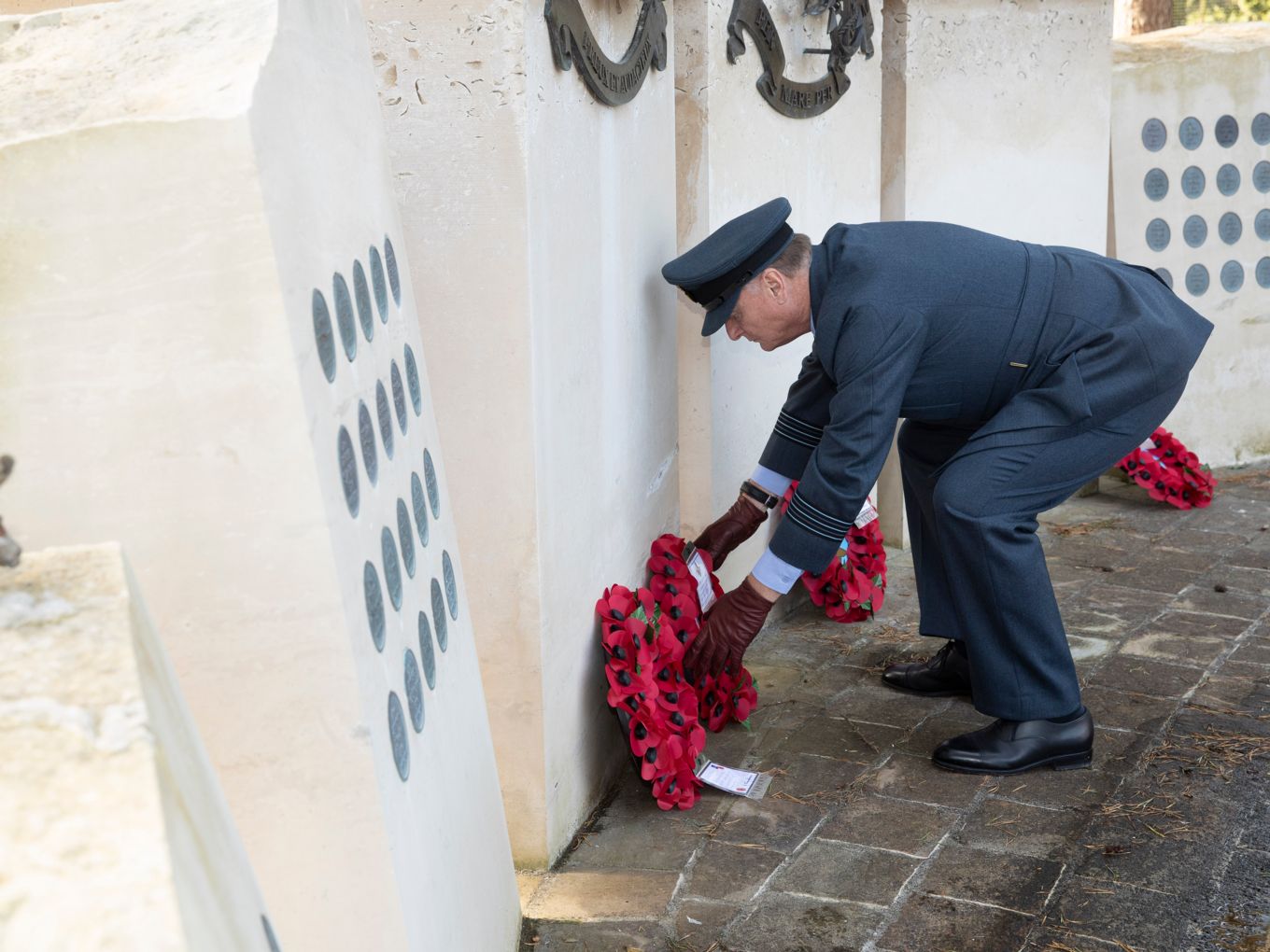
Sarah Brooks, the granddaughter of Flight Lieutenant William Broadley the co-pilot who lost an arm in the crash said:
“It is something I talk about now when I am teaching the younger generation that do not have the family links with people who were in World War Two. To be able to share that real life story helps to keep their memory alive.”
The sixth member of the crew was Flight Sergeant J Milne.
